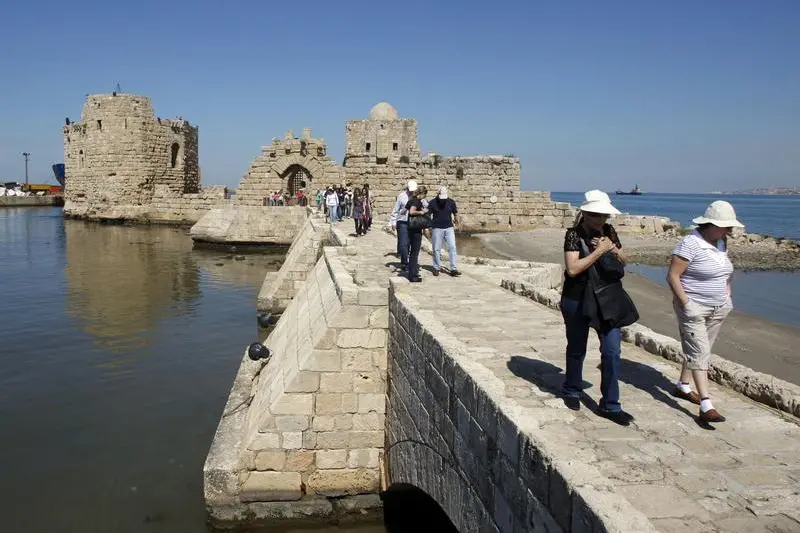PHOTO
Saturday, Jul 02, 2016
Beirut: Last week’s terrorist attacks in Al Qaa near the Syrian border rubbed salt into the wounds as a vast majority of Lebanese are tired of the spillover effects from the five-year-long war next door.
As tourism season kicks off and GCC countries have banned their residents from travelling there, due to Hezbollah’s continuous and aggressive stances and also the unstable security situation, Lebanese authorities have intensified campaigns to bring in more tourists.
On Friday, Minister of Tourism Michel Pharaon said that the tourist season will not be effected by the latest security incidents.
The country has over 90 international concerts and cultural performances lined up for the summer season, and none of them so far have been cancelled.
Michel Haddad, a barber in Jal Al Deeb, is bringing his family to the July 8 Beit Al Deen festival to watch “The Merchants of Bollywood” performance.
“It will be nice to live a few hours of freedom,” he said.
Scarlett Akiki, a Jounieh secretary was adamant that nothing would prevent her from patronising her city’s extravaganzas during the next two months because she preferred “life over death.”
Pharaon’s guarded comments came after the bloody suicide attacks in the north, although these were not the only incidents that preoccupied residents.
Two weeks ago, a bombing rocked Blom Bank’s headquarters in the Hamra district, which wounded two, and while no one claimed responsibility for that attack, Central Bank restrictions on Hezbollah pointed the finger at the party.
Security incidents like these affected the tourism sector, which contributed an estimated 17 per cent of GDP, or roughly $14 billion (Dh51.4 billion), per year.
In 2009, an estimated 1.8 million tourists visited the country, as the New York Times ranked Beirut the No 1 travel destination worldwide due to its nightlife and hospitality.
Arrivals topped the 2 million figure in 2010, though a steady decline occurred ever since because of the war in Syria and, equally important, because Hezbollah — presumably a Lebanese party — opted to fight on behalf of the Syrian government.
Although some progress was recorded in 2014 after GCC countries lifted travel advisories warning citizens against visiting the country, Hezbollah chief Hassan Nasrallah embarked on successive verbal attacks against Saudi Arabia and its GCC partners ever since 2015, which led the Riyadh-based organisation to list the party a terrorist group.
Consequently, GCC states imposed strict travel bans on their nationals and asked those already in Lebanon to leave, which devastated the struggling tourism industry.
Lebanese officials, led by Prime Minister Tammam Salam and the Minister of the Interior Nouhad Al Mashnouq, visited GCC states on numerous occasions to formally request a lifting of the bans though their efforts came to nought.
For now, and notwithstanding political tensions and military skirmishes, the Lebanese are determined to hold as many summer festivals as time allows. Mohammad Sinno, a bank assistant manager in Beirut, summed it up best when he affirmed that the Lebanese “spirit cherished life and we like to share good times with those who prefer to live.”
By Joseph A. Kechichian Senior Writer
Gulf News 2016. All rights reserved.





















